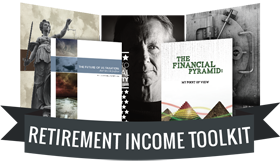Many Wall Street equity analysts were preparing investors for possible disappointment, but only the bears have been discouraged. For the second quarter 2013, 73% of the companies reported earnings above the mean estimate and 54% beat the revenue mean estimate. If the current 1.8% second quarter earnings growth rate holds, it will be the third consecutive quarter of positive growth. Corporate earnings are keeping pace with higher stock prices and on a 12-month forward looking basis the S&P 500 is expected to earning $117.00. With the S&P 500 index nearing 1,700, the current price earnings ratio is fairly valued at 14.5 times.
Since the earnings slowdown did not come to fruition, stock prices continued their assault into new record high territory. Once again, the U.S. equity markets led the way with the NASDAQ Composite grabbing top honors with a 6.63 percent monthly return. The S&P 500, the Dow Jones Industrial Average and the MSCI EAFE index also had a solid July and very impressive twelve month numbers. Emerging markets and commodities continue to disappoint investors. For those diversified portfolios hurt by exposure to these sectors, stay patient as these sectors will once again have their day in the sun.
Our advice related to stocks is to stay the course and remain diversified. While stocks continue to explore new record high levels, their current valuations are justified by historical standards. Remember the main role of stocks in your portfolio is to provide for long-term growth and build wealth. They have been doing exactly that for the past four years.
As you already know, bond markets sold off in May and June as the Federal Reserve hinted at ending their accommodative policies. Federal Reserve chairman Ben Bernanke comments related to “tapering” acted like reset button for interest rates in the bond market. In the blink of an eye, the yield on the 10-year U.S. Treasury Note rose from 1.70% to 2.70%. In July, interest rates were less volatile as a 2.60% 10-year Treasury yield became the new fulcrum point. While the interest rate rise caused a painful decline in bond prices, it also has given the bond market a more attractive valuation on a forward looking basis.
Remember the long-term role of bonds in your portfolio. Over time, bonds provide for capital preservation, income, stability and low correlations to equity returns; important components for successful long-term portfolio strategies. Resist the temptation to change your long-term portfolio strategy because of short-term price movements.
